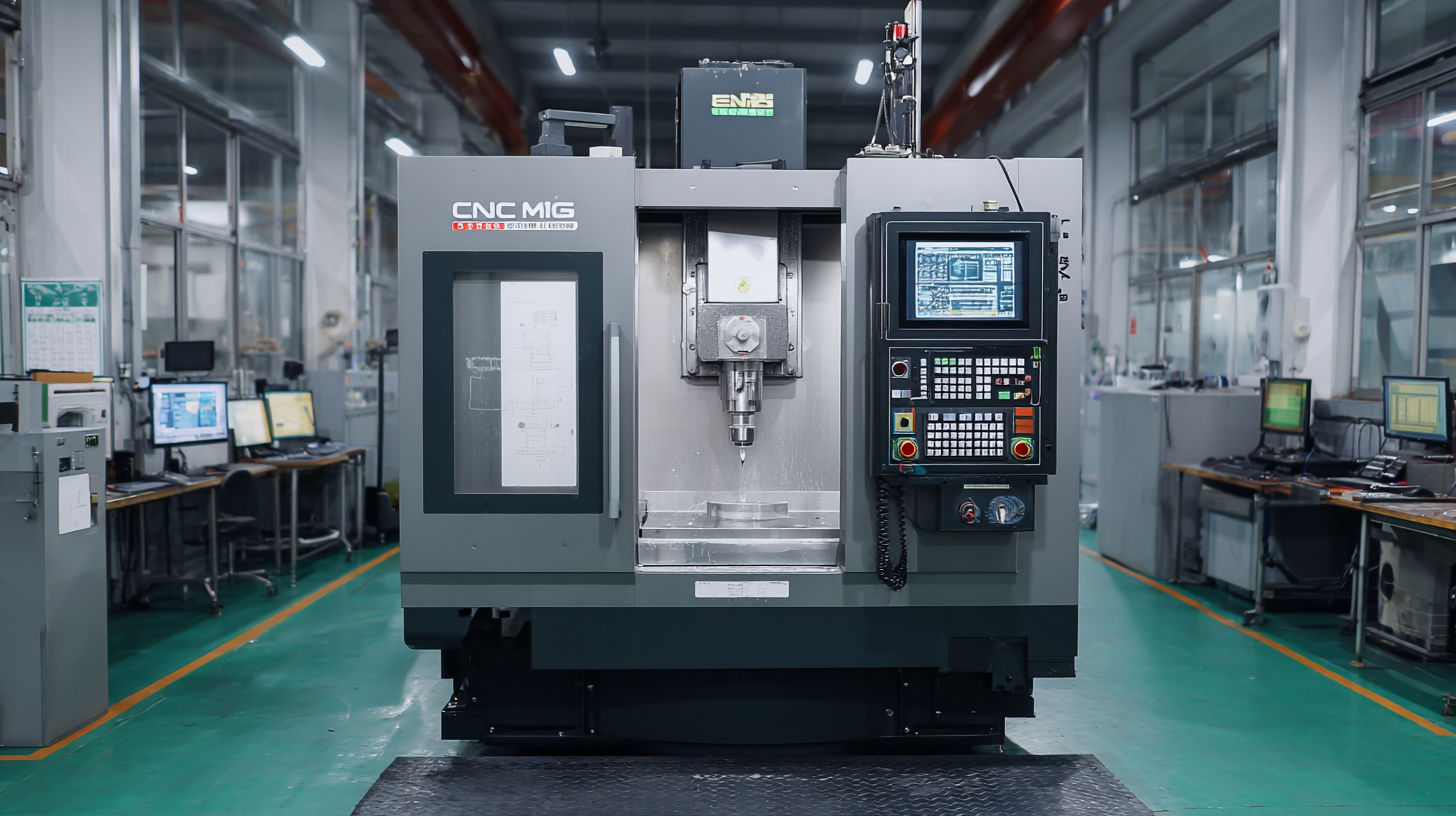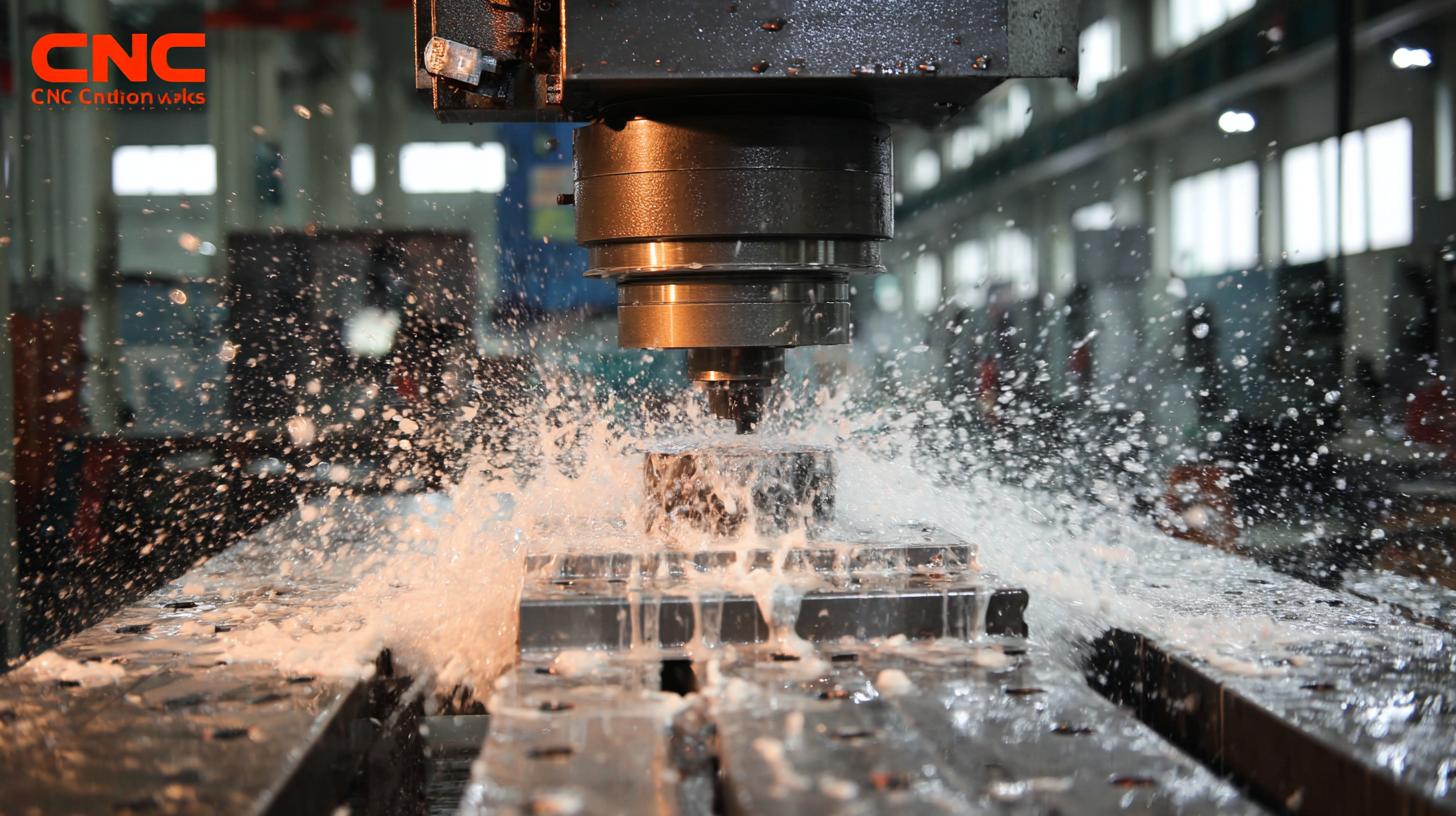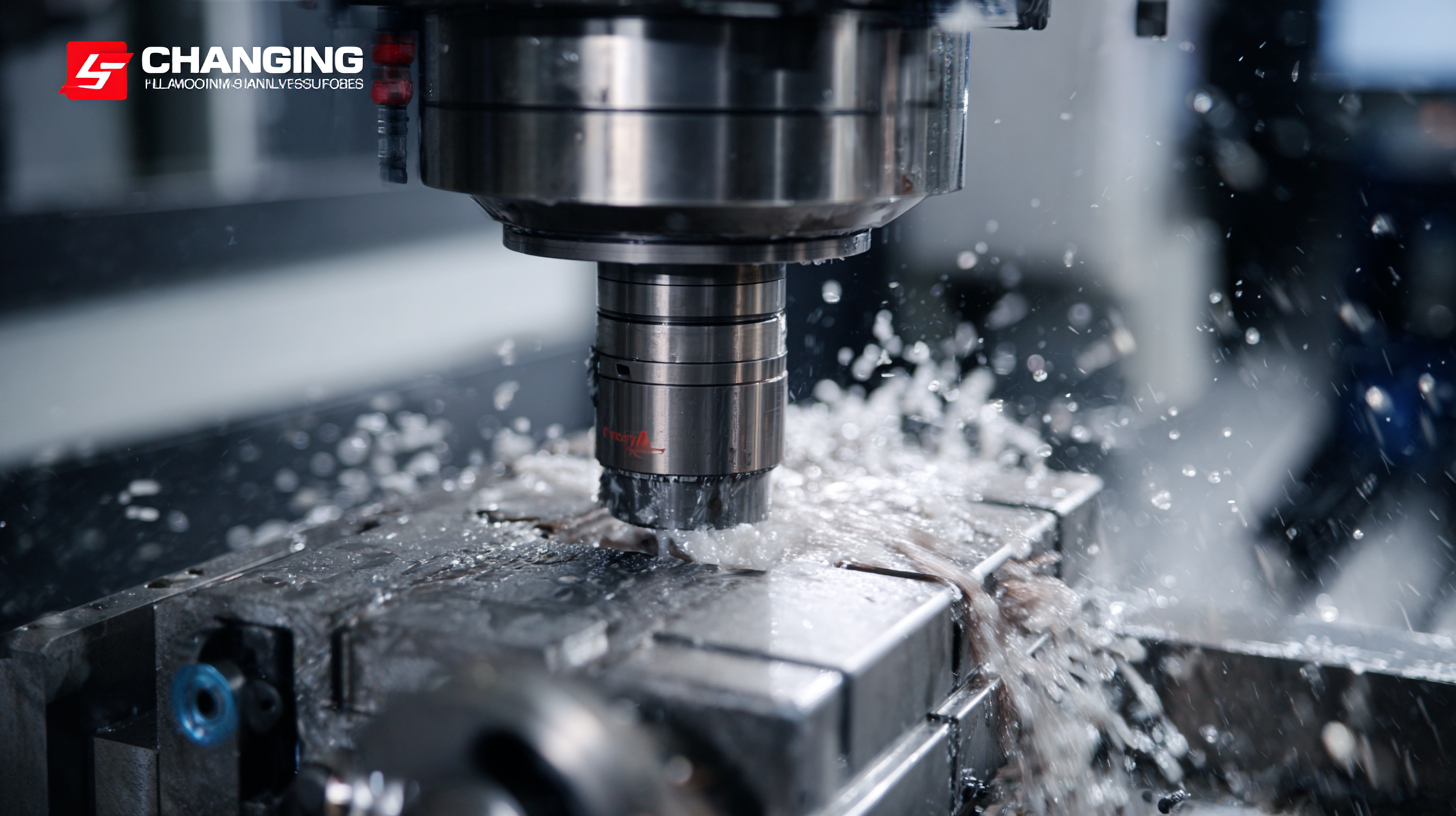Discover China’s Leading CNC Metal Milling Machines: Global Sales Surge with Quality Assurance
In recent years, China's manufacturing sector has gained significant recognition on the global stage, particularly in the realm of CNC metal milling machines. These advanced machines, known for their precision and efficiency, have become essential tools for various industries seeking to enhance their production capabilities.
 As international demand surges, Chinese manufacturers are not only stepping up their output but also ensuring that quality assurance remains a top priority. This blog will delve into the reasons behind the growing popularity of CNC metal milling machines produced in China, exploring how they have emerged as the embodiment of excellence in manufacturing and a testament to the country’s prowess as a leading exporter in the global market.
Join us as we uncover the factors contributing to this remarkable growth and how these machines have established themselves as vital assets for businesses worldwide.
As international demand surges, Chinese manufacturers are not only stepping up their output but also ensuring that quality assurance remains a top priority. This blog will delve into the reasons behind the growing popularity of CNC metal milling machines produced in China, exploring how they have emerged as the embodiment of excellence in manufacturing and a testament to the country’s prowess as a leading exporter in the global market.
Join us as we uncover the factors contributing to this remarkable growth and how these machines have established themselves as vital assets for businesses worldwide.
The Surge in Global Demand for CNC Metal Milling Machines: A Statistical Overview
The global demand for CNC metal milling machines has witnessed a remarkable surge, driven by advancements in manufacturing technologies and an increasing focus on automation. According to a recent market analysis by Research and Markets, the global CNC milling machine market is projected to reach USD 100 billion by 2025, reflecting a compound annual growth rate (CAGR) of 6.5% from 2020 to 2025. This growth is largely attributed to the growing adoption of CNC machines in diverse industries, including aerospace, automotive, and medical devices, where precision and efficiency are paramount.

Furthermore, the Asia-Pacific region is emerging as a significant player in the CNC milling market, with China leading the charge. A report from Technavio states that China's CNC machine tool market is expected to grow by USD 6 billion from 2021 to 2025. This remarkable growth is fueled by the country’s strong manufacturing base, investment in smart manufacturing, and the demand for high-quality metal components. As manufacturers increasingly seek to enhance productivity while maintaining stringent quality control measures, the appeal of CNC metal milling machines continues to rise, underscoring their pivotal role in modern manufacturing processes.
Assessing After-Sales Service Benefits in the CNC Milling Market
In the competitive landscape of CNC milling, after-sales service plays a crucial role in differentiating manufacturers. As the global demand for CNC metal milling machines surges, businesses are increasingly focused on the support they can provide post-purchase. Effective after-sales service not only enhances customer satisfaction but also fosters long-term loyalty. Companies that prioritize timely maintenance, readily available spare parts, and skilled technical support are more likely to thrive in this booming market.

Moreover, the benefits of robust after-sales service extend beyond mere customer satisfaction. They significantly impact the overall operational efficiency of milling machines. When customers receive prompt assistance and expert guidance, they can optimize machine performance and minimize downtime. This not only leads to increased productivity but also ensures that users fully leverage the potential of their CNC machines. Additionally, strong after-sales relationships can provide valuable feedback to manufacturers, guiding future innovations and service improvements, thereby reinforcing a cycle of quality assurance within the CNC milling industry.
Reduction of Maintenance Costs: Strategies for CNC Metal Milling Machine Users
As CNC metal milling machines continue to gain prominence in the manufacturing sector, users are increasingly focused on strategies to reduce maintenance costs. According to a report by Techsci Research, the global CNC machine tools market is projected to reach USD 100 billion by 2025, underscoring the growing dependency on these technologies. To optimize the longevity and performance of these machines, users should prioritize routine maintenance, which can significantly decrease unplanned downtime and repair expenses. Regular inspections and timely part replacements are essential to ensure that machines operate efficiently and continue to meet production demands.
Another effective strategy is to invest in advanced monitoring technologies. A recent study from MarketsandMarkets indicates that the market for predictive maintenance tools in manufacturing is expected to grow at a CAGR of 28% from 2020 to 2025. By implementing predictive analytics, users can identify potential issues before they escalate into costly repairs. This proactive approach not only reduces maintenance costs but also enhances the overall productivity of the CNC metal milling operations, allowing manufacturers to stay competitive in a rapidly evolving marketplace.
Discover China’s Leading CNC Metal Milling Machines: Global Sales Surge with Quality Assurance
| Model | Max Cutting Speed (m/min) | Precision (mm) | Annual Maintenance Cost (USD) | Market Growth Rate (%) |
|---|---|---|---|---|
| CNC-5000 | 25 | 0.01 | 1200 | 15 |
| CNC-6000 | 30 | 0.008 | 1500 | 20 |
| CNC-7000 | 35 | 0.005 | 1800 | 25 |
| CNC-8000 | 40 | 0.003 | 2000 | 30 |
Quality Assurance Standards in China’s CNC Milling Machine Production
China's CNC milling machine production is currently experiencing a paradigm shift, driven by stringent quality assurance standards that are reshaping the manufacturing landscape. The implementation of robust quality checks and adherence to international norms have positioned China's CNC machines as competitive players in the global market. This transformation not only enhances product reliability but also instills confidence among international buyers, leading to a remarkable surge in global sales.
In addition, the rise of automated systems and AI technologies in CNC machining has taken quality assurance to new heights. Innovations like the touch probing system allow for real-time data collection, making it easier to monitor and optimize the machining process. This integration of advanced technology ensures that each machine produced meets the highest standards of precision and durability, thus satisfying the increasing demands of various industries, from aerospace to automotive. As China's manufacturing sector continues to innovate, the emphasis on quality assurance will likely remain a key driver of success in the CNC milling machine market.
Comparative Analysis: Leading Brands and Their Global Market Penetration
As the demand for precision engineering continues to rise globally, CNC metal milling machines from China have become increasingly prominent in the market. This comparative analysis focuses on leading brands, examining their market strategies and penetration across different regions. Notable players such as HAAS, DMG MORI, and China’s own BYJC are redefining industry standards through innovative technology and robust manufacturing processes. This competition has catalyzed advancements, resulting in enhanced product offerings and greater reliability, which are critical for manufacturers seeking to optimize productivity.
The global sales surge of Chinese CNC milling machines is largely driven by their competitive pricing and commitment to quality assurance. Brands that prioritize after-sales support and customer relationships are finding greater success in foreign markets. For instance, firms are not only improving their machinery but also ensuring that comprehensive training and maintenance services are included. This dual focus on quality and service has enabled these brands to penetrate markets in North America, Europe, and Southeast Asia effectively, establishing a solid reputation and fostering long-term partnerships within the manufacturing sector.